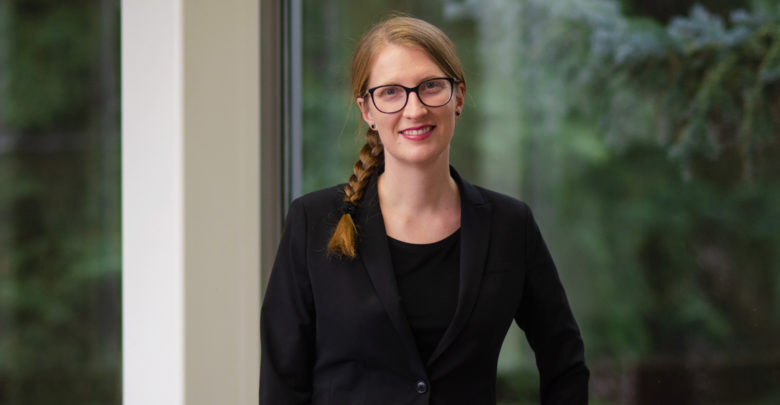 Helen Zhang
Helen Zhang A University of Alberta public health associate professor led a recently approved United Nations report on the effects of climate change on the oceans and cryosphere.
Besides the research, Sherilee Harper, a public health associate professor, conducts on the effects of climate change on Inuit communities, she recently had the opportunity to lead over 100 international climate change scientists in creating a report informing the United Nations (UN) about how climate change affects the oceans and cryosphere — the frozen portion of the Earth’s water.
The Intergovernmental Panel on Climate Change (IPCC), a UN body dedicated to creating reports assessing the current state of climate change literature, commissioned the report. For two years, Harper and her team of international scientists studied, reviewed, and assessed over 7,000 research articles. This September, Harper had the chance to present the findings in Monaco in front of representatives from 100 different countries.
For Harper, it was exciting to be able to create a report that has historically laid the base of many important UN policies.
“Things like the Paris Agreement or the Kyoto Protocol were based on IPCC reports, so they provide really important evidence for international governance, agreements, and decision-making around climate change,” she said.
Thinking back to her time as a graduate student, creating the report was a full-circle moment because she authored a report that once heavily guided her current career path.
“It’s pretty cool because when I was doing my Masters, those IPCC reports were really influential for me,” she said. “I had read those cover to cover and they were a go-to source for information, not only for the science, but also for teaching and guest lectures and public talks… it’s definitely a career highlight.”
One of the main functions of the report was to emphasize the global interconnectedness of climate change, such as the connections Harper saw between the Arctic and the tropics.
“When you hear about things like melting ice caps or warming permafrost in the Arctic, it seems like that is an issue that doesn’t really impact us,” she said. “What this report clearly shows is that those melting glaciers and the sea level rise also impacts places as far away as Fiji.”
“Those islands disappearing or something happening in the Arctic seem so far away, but the foods we eat in the grocery store have already been impacted in Edmonton. Even though it seems like something far away, the truth of the matter is it’s already impacting each and every one of us.”
Climate change impacts can include food security and safety, increased morbidity and mortality, increases in water-borne diseases, and respiratory health issues due to increased forest fires. However, alongside these physical effects, Harper also emphasized climate change having profound effects on mental health.
“Constantly seeing things on the news about other communities suffering or experiencing climate change impacts is really hard to watch,” she said.
“For those people experiencing high impact climate-related weather events, there is a lot of mental health challenges: the stress of potentially being evacuated, the stress of being evacuated. A lot of researchers are now showing there is a lot of post-traumatic stress associated with that.”
In her research at the U of A, Harper has seen climate change’s impacts on mental health first-hand in Inuit communities. Hunting and fishing are a big part of Inuit culture, and a cheaper, healthier alternative to preservative-rich foods flown into the community. However, because of climate change, Harper sees communities struggling with food security — and consequently mental health — as ice conditions become unstable.
“If people are out in those stressful conditions, they’re concerned for their safety, and there is a lot of anxiety around that,” she said. “If you can’t bring that food home and you are experiencing food insecurity because of those changing conditions, that also creates a lot of stress and anxiety.”
But Harper also sees Inuit communities setting an international example for surviving in current climates, such as posting dangerous hunting and fishing paths on Facebook groups.
“While they are experiencing these really challenging situations, they also display a lot of innovations and resiliency,” Harper said. “The Inuit are incredibly innovative and have shown a lot of leadership in climate change adaptation.”
Inspired by this, Harper is currently in the final stages of creating an app for Inuit communities that will allow them to make posts regarding dangerous routes that will be easier to navigate, more searchable, and archivable.
Through all the experience Harper has garnered working with Inuit communities and the UN, she believes that one of the most important things everyday people can do for climate change is to share their experiences.
“One of the most important things that people can do is talk about it and talk about it on a personal level,” she said. “Climate change is this big global phenomenon, but how does it affect you? Talk about different adaptation strategies. Ask questions.”






